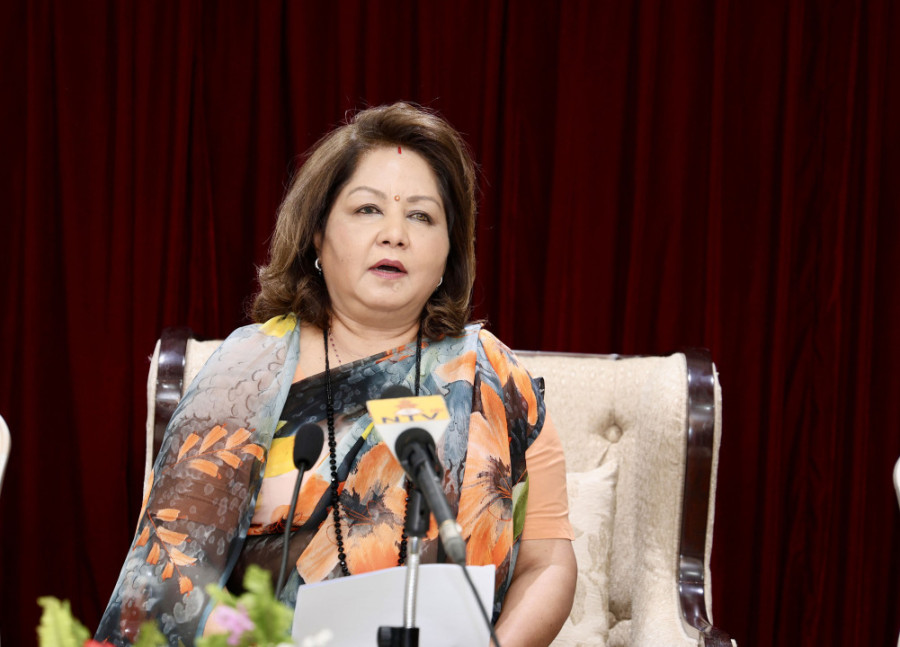National
175 foreign delegates to attend Sagarmatha Sambad in Kathmandu
The three-day event, which will officially open on May 16 and run through May 18, will be inaugurated by Prime Minister KP Sharma Oli.
Post Report
Around 175 foreign delegates are expected to take part in the Sagarmatha Sambad, Nepal’s premier global climate dialogue, scheduled to begin this week in Kathmandu. Speaking at a press conference held at Singha Durbar on Tuesday, Minister for Foreign Affairs Dr Arzu Rana Deuba confirmed the attendance of high-level representatives from across the globe.
"The three-day event, which will officially open on May 16 and run through May 18, will be inaugurated by Prime Minister KP Sharma Oli," she said.
The dialogue, operating under the theme ‘Climate Change: Mountains and the Future of Humanity’, aims to foster regional and international cooperation on pressing climate issues, particularly those affecting mountainous and vulnerable island nations.
According to Minister Deuba, the event will feature around 350 participants in total, including parliamentarians, ministers, and climate experts. Foreign delegates attending the Sambad will also have courtesy meetings with Prime Minister Oli, as well as sideline discussions with their Nepali counterparts.
“The dialogue will include 12 thematic sessions, addressing topics such as the urgency of limiting global temperature rise to 1.5°C, sustaining mountain economies, loss and damage in island nations, and promoting gender and intergenerational equity in climate action,” Deuba said.
Notably, representatives from China and India will deliver special addresses during the event. In addition, a climate envoy from the President of Azerbaijan, who is set to chair COP29 later this year, will also speak.
Sagarmatha Sambad, first announced in 2019 but delayed due to the COVID-19 pandemic, is inspired by global forums such as the World Economic Forum in Davos and the Raisina Dialogue in New Delhi. The initiative seeks to create a coalition for ambitious climate action, particularly to safeguard mountain regions and vulnerable communities around the world.




 12.12°C Kathmandu
12.12°C Kathmandu














